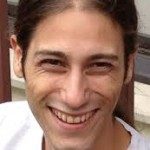Link to Pubmed [PMID] – 27191778
Autophagy 2016 May;:1-2
Sphingolipids are bioactive molecules playing a key role as membrane components, but they are also central regulators of many intracellular processes including macroautophagy/autophagy. In particular, sphingosine-1-phosphate (S1P) is a critical mediator that controls the balance between sphingolipid-induced autophagy and cell death. S1P levels are adjusted via S1P synthesis, dephosphorylation or degradation, catalyzed by SGPL1 (sphingosine-1-phosphate lyase 1). Intracellular pathogens are able to modulate many different host cell pathways to allow their replication. We have found that infection of eukaryotic cells with the human pathogen Legionella pneumophila triggers a change in the host cell sphingolipid metabolism and specifically affects the levels of sphingosine. Indeed, L. pneumophila secretes a protein highly homologous to eukaryotic SGPL1 (named LpSPL). We solved the crystal structure of LpSPL and showed that it encodes lyase activity, targets the host’s sphingolipid metabolism, and plays a role in starvation-induced autophagy during L. pneumophila infection to promote intracellular survival.



